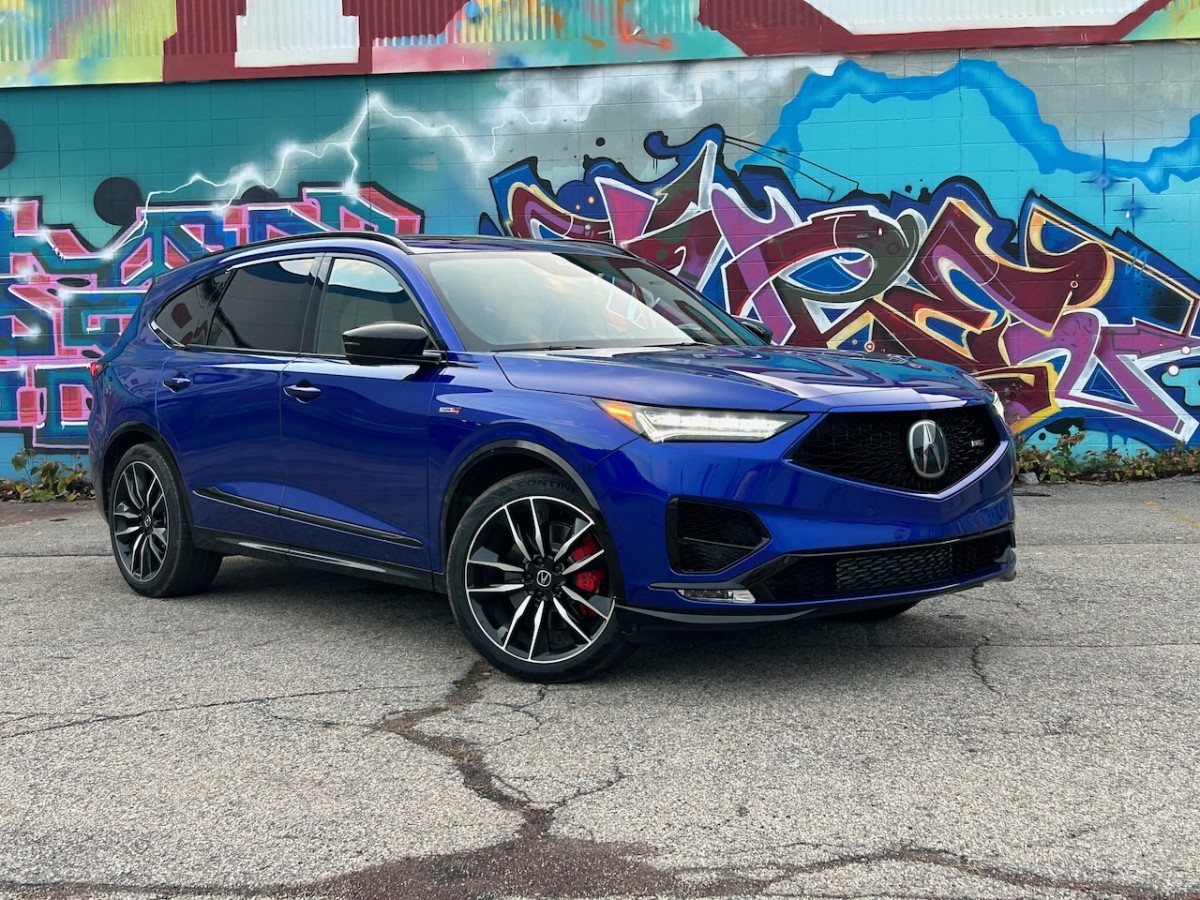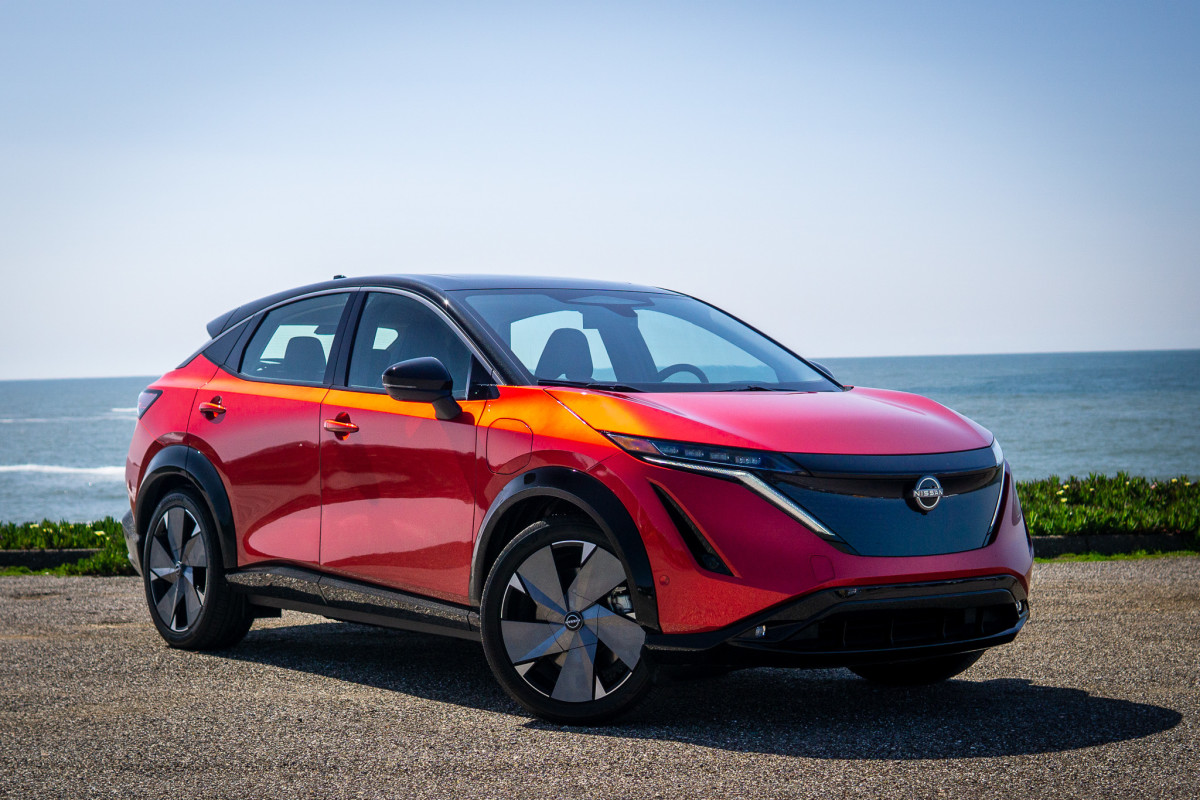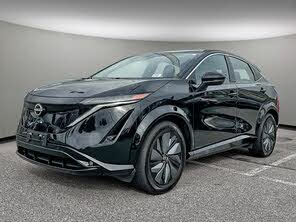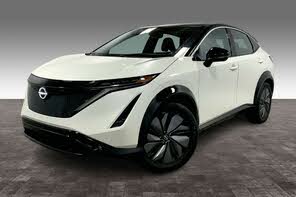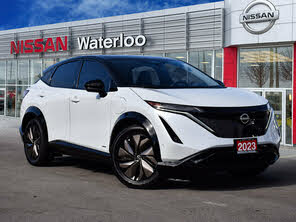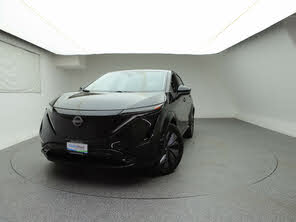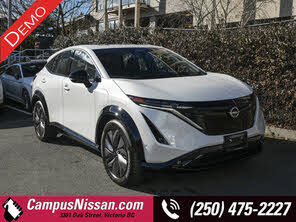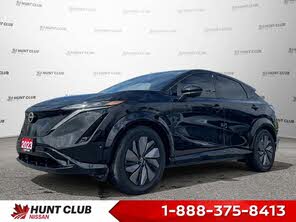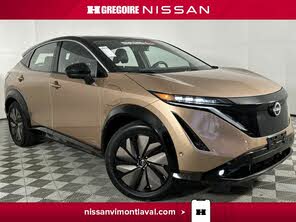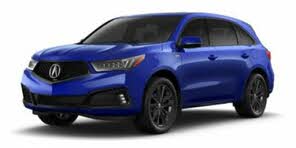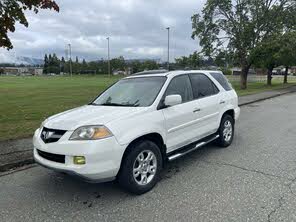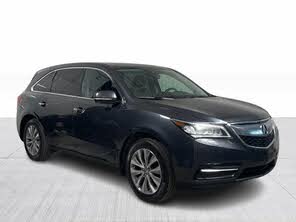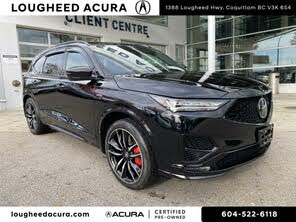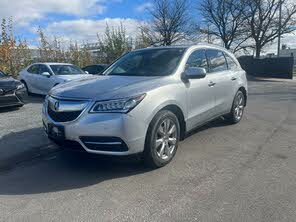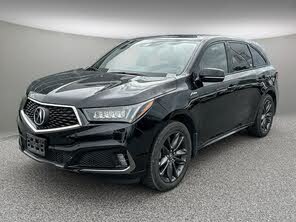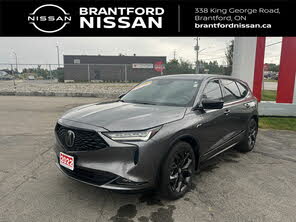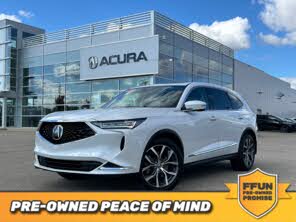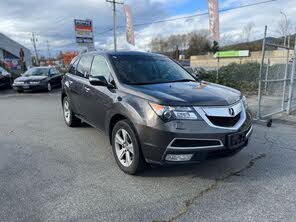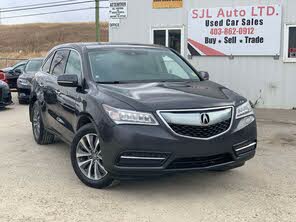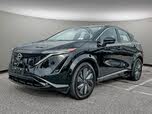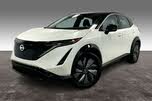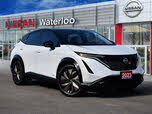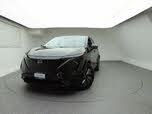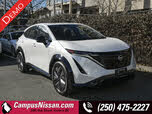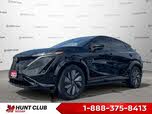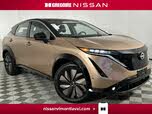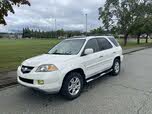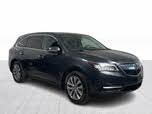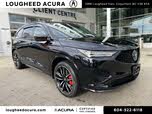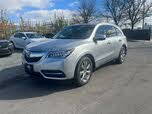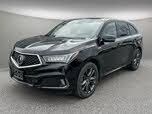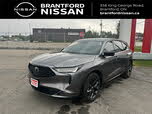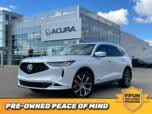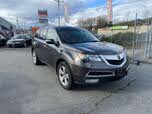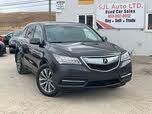Nissan Ariya vs Acura MDX
Overview | |
Years produced2001-2020 | Years produced2023-Present |
MSRP$51,200 | MSRP$43,190 |
Average price$32,134 | Average price$50,868 |
Listings740 | Listings283 |
Ratings & Reviews | |
User Reviews | User Reviews |
Expert reviews | Expert reviews8.5 out of 10 |
Pros
| |
Reviews Summary | |
Reviews SummaryBy 2023, it should be clear that electric vehicles (EVs) are here to stay. Companies that got started early on EVs have a head start, and when considering the current era of electric mobility, no major automaker got out of the starting blocks faster than Nissan. The 2010 Nissan Leaf invited the masses to experience quiet, efficient motoring—but in the decade-plus since its debut, it has been caught by more impressive competition. The all-new 2023 Nissan Ariya aims to retake market share in the electric vehicle space. With front- and all-wheel-drive powertrain options, slick design, immersive technology, and a competitive price tag, the Ariya looks capable of putting Nissan back into the EV conversation. We tested a single-motor Ariya in the fall of 2022 and have since evaluated the dual-motor e-4ORCE model for this updated review. | |
No video found | No video found |
Popular Features & Specs | |
Engine | Engine214 hp Electric |
Drive Train | Drive TrainFWD |
Seating Capacity7 | Seating Capacity5 |
EV Battery Capacity | EV Battery Capacity63 kWh |
MPG City | MPG City109 |
MPG Highway | MPG Highway94 |
Battery Charge Time (240V) | Battery Charge Time (240V)10.5 hours |
Engine | |
Engine Name3.5L 290 hp V6 | Engine Name214 hp Electric |
Torque267 lb-ft @ 4700 rpm | Torque |
Horsepower290 hp @ 6200 rpm | Horsepower |
Battery Charge Time (240V) | Battery Charge Time (240V)10.5 hours |
DrivetrainFWD | DrivetrainFWD |
Fuel Economy | |
EV Battery Capacity | EV Battery Capacity63 kWh |
MPG City | MPG City109 |
MPG Highway | MPG Highway94 |
Interior | |
Seating Capacity7 | Seating Capacity5 |
Key Features | |
Navigation SystemStandard | Navigation SystemStandard |
Sunroof/MoonroofStandard | Sunroof/Moonroof |
Safety | |
Front Crash Overall4 | Front Crash Overall4 |
Side Crash Overall5 | Side Crash Overall5 |
Dimensions & Capacity | |
Cargo Space16.3 cu ft | Cargo Space22.8 cu ft |
Curb Weight4268 lbs | Curb Weight4323 lbs |
Height67.9 in | Height65.4 in |
Length198.4 in | Length182.9 in |
Width78.7 in | Width85.5 in |
Wheelbase113.8 in | Wheelbase109.3 in |
Maximum Payload1173 lbs | Maximum Payload |
Number of doors4 | Number of doors4 |
Maximum Towing Capacity3500 lbs | Maximum Towing Capacity |
Overview | ||
Years produced | 2001-2020 | 2023-Present |
MSRP | $51,200 | $43,190 |
Average price | $32,134 | $50,868 |
Listings | ||
Ratings & Reviews | ||
User reviews | 4.5 | 4.0 |
Expert reviews | 8.5 out of 10Read full review | |
Pros & cons | Pros
| |
Summary | By 2023, it should be clear that electric vehicles (EVs) are here to stay. Companies that got started early on EVs have a head start, and when considering the current era of electric mobility, no major automaker got out of the starting blocks faster than Nissan. The 2010 Nissan Leaf invited the masses to experience quiet, efficient motoring—but in the decade-plus since its debut, it has been caught by more impressive competition. The all-new 2023 Nissan Ariya aims to retake market share in the electric vehicle space. With front- and all-wheel-drive powertrain options, slick design, immersive technology, and a competitive price tag, the Ariya looks capable of putting Nissan back into the EV conversation. We tested a single-motor Ariya in the fall of 2022 and have since evaluated the dual-motor e-4ORCE model for this updated review. | |
Video | No video found | No video found |
Popular Features & Specs | ||
Engine | 214 hp Electric | |
Drive Train | FWD | |
Seating Capacity | 7 | 5 |
EV Battery Capacity | 63 kWh | |
MPG City | 109 | |
MPG Highway | 94 | |
Battery Charge Time (240V) | 10.5 hours | |
Engine | ||
Engine Name | 3.5L 290 hp V6 | 214 hp Electric |
Torque | 267 lb-ft @ 4700 rpm | |
Horsepower | 290 hp @ 6200 rpm | |
Battery Charge Time (240V) | 10.5 hours | |
Drivetrain | FWD | FWD |
Fuel Economy | ||
EV Battery Capacity | 63 kWh | |
MPG City | 109 | |
MPG Highway | 94 | |
Interior | ||
Seating Capacity | 7 | 5 |
Key Features | ||
Navigation System | Standard | Standard |
Sunroof/Moonroof | Standard | |
Safety | ||
Front Crash Overall | 4 | 4 |
Side Crash Overall | 5 | 5 |
Dimensions & Capacity | ||
Cargo Space | 16.3 cu ft | 22.8 cu ft |
Curb Weight | 4268 lbs | 4323 lbs |
Height | 67.9 in | 65.4 in |
Length | 198.4 in | 182.9 in |
Width | 78.7 in | 85.5 in |
Wheelbase | 113.8 in | 109.3 in |
Maximum Payload | 1173 lbs | |
Number of doors | 4 | 4 |
Maximum Towing Capacity | 3500 lbs | |

By: CarGurus + AI
At CarGurus, our team of experienced automotive writers remain at the heart of our content operation, conducting hands-on car tests and writing insightful guides that are backed by years of industry experience. To complement this, we are harnessing AI to make our content offering more diverse and more helpful to shoppers than ever. To achieve this, our AI systems are based exclusively on CarGurus content, ratings and data, so that what we produce is both unique to CarGurus, and uniquely helpful to car shoppers.
